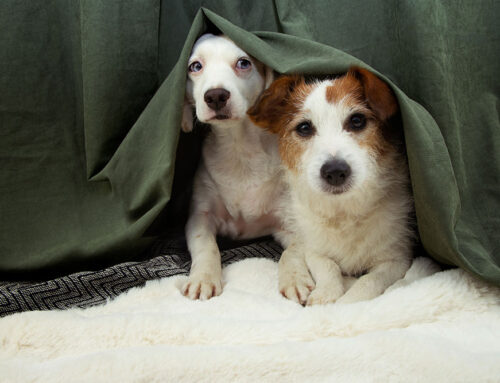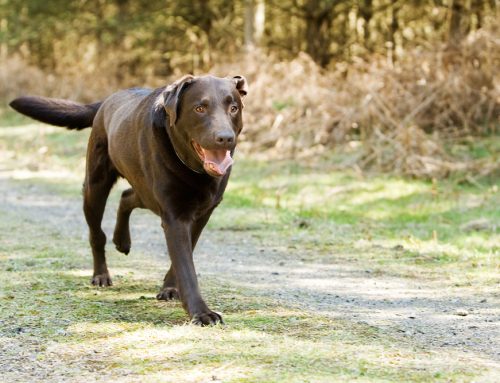KENNEL COUGH (Infectious Tracheobronchitis) is a canine respiratory infection caused by Bordetella bronchiseptica & canine parainfluenza virus.
These pathogens attack the cilia lining the respiratory tract & cause inflammation of the upper airway. This leads to irritation of the airways & a dry cough. It also makes your dog more susceptible to a secondary infection. Kennel cough is VERY contagious.
It is named kennel cough because it can quickly spread through a kennel & infect every dog. Kennel cough can be transmitted by aerosols released when a sick animal coughs, by direct contact with an infected animal, or by the sharing of contaminated objects. Kennel cough spreads rapidly when dogs are kept in close quarters (such as boarding facilities & animal shelters), but it can also spread if a dog greets an infected dog during a walk or drinks from a contaminated water bowl at the dog park.
Any dog can get kennel cough, but puppies & unvaccinated dogs are at a greater risk. Kennel cough causes a persistent, nonproductive cough that may sound as if something is caught in your pet’s throat & they are gagging or trying to clear their throat. Others describe it as a deep honking cough. Symptoms usually develop 3 to 10 days after exposure to an infected animal.
Animals with kennel cough will otherwise act & eat normally. Exercise or getting excited can make symptoms worse. If your dog has a cough see your veterinarian as soon as possible.
Your vet will examine your dog to exclude other causes of a nonproductive cough, such as heart disease, fungal & parasitic infections like heartworm disease, a collapsing trachea, & cancer.
Dogs with kennel cough usually have a history of exposure (newly acquired pets from a shelter, pet store, or breeder) or pets that have recently been boarded, to a groomer, recent boarding, training classes, dog shows, or outings to dog parks.







Leave A Comment